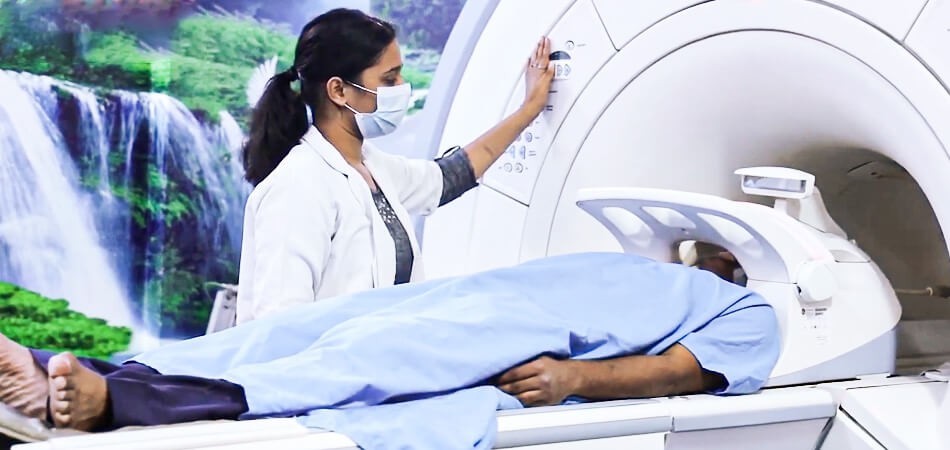Let’s Have a Detailed Understanding on The Qualities of A Radiographer

Who is a Radiographer?
A Radiographer is a healthcare professional who undergoes training and in academics to perform examinations using the imaging modalities. The examinations include X-Rays, CT (Computed Tomography), MRI (Magnetic Resonance Imaging), and OPG (Orthopantomogram), Mammography etc. Radiographers are responsible for positioning patients in a correct manner, operate the modalities and produce quality images for diagnosis. A radiographer also ensures radiation safety for patients, other healthcare workers and public by applying radiation protocols for exposure protection.
What is Radiography?
Radiography is a crucial branch of medical science in medical field that deals with imaging modalities that are used to examine and evaluate anomalies. In simple terms radiography is basically an amalgam of photography with the use of radiation.
The first X-ray was introduced by Sir Wilhem Conrad Roentgen on November 8th1895, this was the breakthrough of all cutting edge modern modalities that are being used at the present. Radiography consists of two categories namely diagnostic and therapeutic. Any fracture, blockages in arteries and veins, presence of tumor or cysts and much more can all be studied and evaluated in radiography.
Importance of a Radiographer
Radiographers take part in a crucial manner under healthcare structure and how their importance and values are noted is by their ability to produce diagnostic quality images that aid in the evaluation and study of anomalies of different health conditions. Given below are few highlights or points in the importance of radiographer:
- A radiographer’s role is to perform procedures like x-rays, CT scan, MRI etc, to identify fractures or infections or abnormalities in the organs and tissues.
- Radiology field is usually used for treatment planning example cancer, and radiographers will assist in the treatment by providing clear and detailed images to help study and monitor the disease.
- Radiographers will be partly responsible to contribute in monitoring the disease progression as well as treatment effectiveness. Follow-up medical imaging procedures and studies can assist and help physician and doctors to assess any change in patient condition over time.
- Role of radiographer in emergency care is that they can obtain diagnostic images quickly to assist and evaluate traumas in critical situations. Rapid and informed decisions are made through this information hence highlighting the importance of radiographers.
- The knowledge and training to use radiation in a safe and responsible manner are taught to radiographers during their academics, where they follow strict protocols in minimizing radiation to patients and other healthcare workers and themselves too. In addition to that they must also ensure to provide high quality images.
- Radiographers often have direct interaction with patients where they explain procedures, provide support, and ensure that the patients are comfortable during their examinations.
- A radiographer’s expertise along with collaboration with other healthcare givers is of utmost essential to deliver extensive and highly effective patient care.
- Radiological evidence is a must before preceding any kind of further investigations or treatments.
Qualities of A Skilled Radiographer
- A skilled Radiographer must have technical competency towards medical imaging modalities and technologies.
- Proficiency in accurate patient positioning to obtain good quality images for diagnosis evaluation.
- Attention towards minute details is of utmost importance to make sure that the images obtained are clear and of optimum quality.
- A skilled radiographer must have the quality of compassion and empathy to deal with patients who are anxious and in pain, being sensitive towards a patient concern and need will contribute to a comfortable environment.
- Communication skill is another very important quality factor a radiographer must possess, since in this field there is involvement of direct interaction with patients on a regular basis.
- Problem-solving quality, the ability to think critically and solve problems efficiently is essential for a good radiographer.
- Professionalism maintenance in dealing with patience and colleagues will display confidence as well as continuous improvement in career growth.
- Collaborative teamwork; in a healthcare industry it takes a community in the diagnosis and treatments of illness, the community will consist not only radiographers but many other different healthcare professionals hence the ability to work closely with other professionals are crucially essential.
- Stress management, staying focused under pressure and maintaining composure is important to deliver high quality patient care.
Why to become a Radiographer?
Every ambitions and goals must align with interests, career goals, and core values. If you think that you can find fulfillment in working at a healthcare sector, radiography can be an option. Here, you can play a major role in contributing towards health improvement and well-being of patients. To witness positive impact to deliver high quality accurate images can be gratifying and thus, if you are passionate about the healthcare industry, cutting edge technology and make positive impact on people’s lives radiography can be a meaningful career track for you.
How to become a Radiographer?
To become a radiographer, one must complete their diploma or degree in Radiology and Imaging Technology course program from a recognized university. The details for the course programs of Radiology and Imaging Technology are discussed below.
Why should you choose Ganesh Paramedical College?
Ganesh Paramedical College serves as the best paramedical college in India dedicated to provide quality academics and high professional training. Our aim and vision is to impart outstanding academic programs with strong emphasis on training and skill development, be it in medical imaging machinery or in soft skills. Our college is equipped with amazing cutting-edge technologies to facilitate effective and holistic learning.
Courses and Overview
Given below are the course programs with fee structures available in Ganesh Paramedical College:
- CRIT/Certificate in Radiology and Imaging Technology: 1 year DRIT/Diploma in Radiology and Imaging Technology: 2 year BRIT/Bachelor of Science in Radiology and Imaging Technology: 3 years
- M.Sc. RIT/Master of Science in Radiology & Imaging Technology: 2 years
Connect to us at any of the platform given below! Hurry up!
Enroll now!

